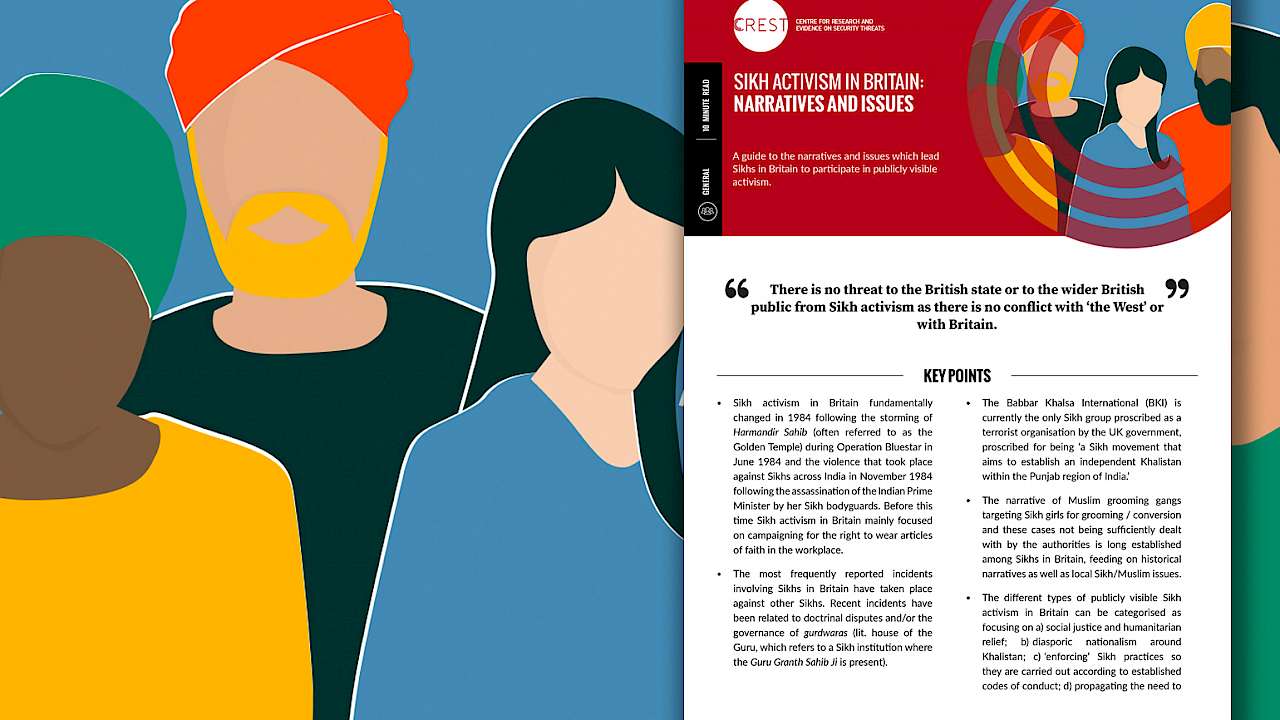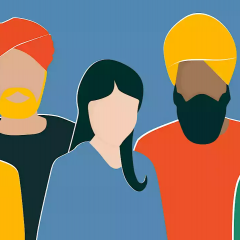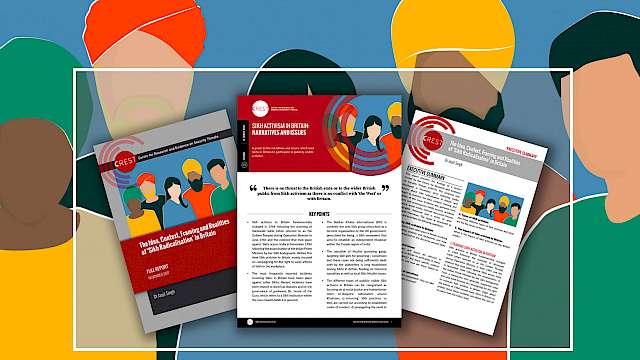There is no threat to the British state or to the wider British public from Sikh activism as there is no conflict with ‘the West’ or with Britain
Key points
Sikh activism in Britain fundamentally changed in 1984 following the storming of 'Harmandir Sahib' (often referred to as the Golden Temple) during Operation Bluestar in June 1984 and the violence that took place against Sikhs across India in November 1984 following the assassination of the Indian Prime Minister by her Sikh bodyguards. Before this time Sikh activism in Britain mainly focused on campaigning for the right to wear articles of faith in the workplace.
The most frequently reported incidents involving Sikhs in Britain have taken place against other Sikhs. Recent incidents have been related to doctrinal disputes and/or the governance of 'gurdwaras' (lit. house of the Guru, which refers to a Sikh institution where the 'Guru Granth Sahib Ji' is present).
The Babbar Khalsa International (BKI) is currently the only Sikh group proscribed as a terrorist organisation by the UK government, proscribed for being ‘a Sikh movement that aims to establish an independent Khalistan within the Punjab region of India.’
The narrative of Muslim grooming gangs targeting Sikh girls for grooming/conversion and these cases not being sufficiently dealt with by the authorities is long-established among Sikhs in Britain, feeding on historical narratives as well as local Sikh/Muslim issues.
The different types of publicly visible Sikh activism in Britain can be categorised as focusing on a) social justice and humanitarian relief; b) diasporic nationalism around Khalistan; c) ‘enforcing’ Sikh practices so they are carried out according to established codes of conduct; d) propagating the need to ‘defend/police’ the Sikh community against a variety of perceived ‘external threats’ and e) personal/factional disputes leading to ‘Sikh on Sikh’ incidents in 'gurdwaras'.
There is no threat to the British state or to the wider British public from Sikh activism as there is no conflict with ‘the West’ or with Britain. There has been no targeting of British state officials following the 2014 revelations that the British government advised the Indian government in their planning for Operation Bluestar as most Sikhs simply wish to fully understand the level of involvement of Britain at the time.
Much Sikh activism in Britain contributes positively to the integration agenda, particularly in the form of humanitarian relief provided during disasters (Somerset/Hebden Bridge floods, Grenfell) and incidents where the public require support (street food banks).
Copyright Information
As part of CREST’s commitment to open access research, this text is available under a Creative Commons BY-NC-SA 4.0 licence. Please refer to our Copyright page for full details.
IMAGE CREDITS: Copyright ©2024 R. Stevens / CREST (CC BY-SA 4.0)






